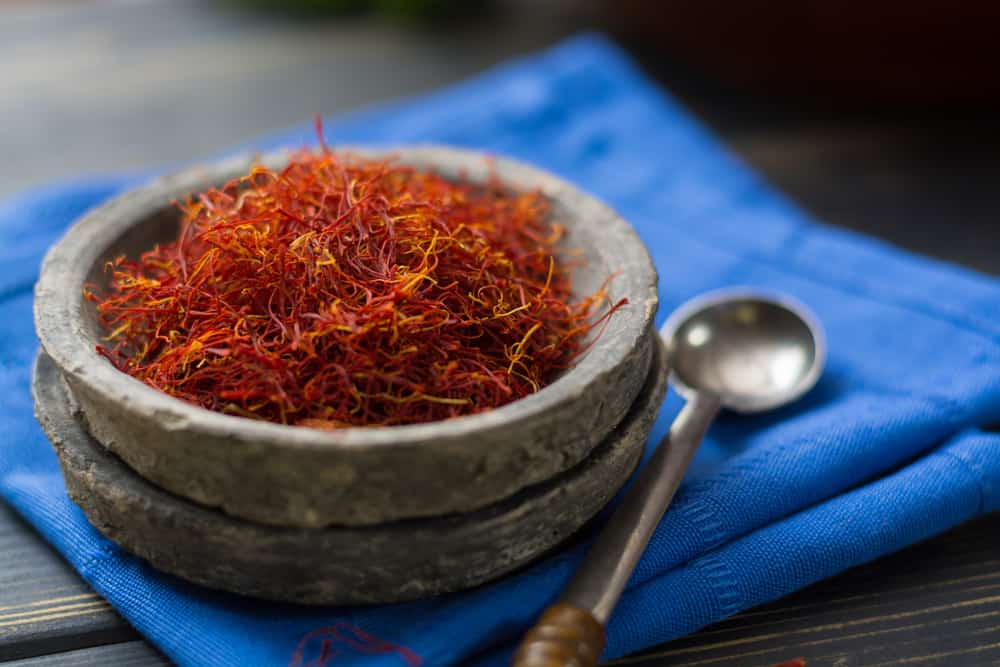Since antiquity saffron has been prized not only for the spice’s unique color and flavor but also for its medicinal purposes. The brilliant yellow-orange stigma of the Crocus sativus, saffron contains a plethora of volatile and non-volatile oils, which give the spice its distinctive hue and taste as well as powerful antioxidant, disease fighting, and health restoring properties.
Over a period of 4,000 years since the use of saffron was first documented it has been used to treat over 90 illnesses.
Pure saffron’s first documented appearance is in a 7th-century BC Assyrian botanical reference. Since then saffron has been used therapeutically for a wide range of conditions. It is thought to have antiseptic, antidepressant, digestive, and anti-convulsant properties.
What was once an old wives tale has been retained even into modern times; to this day mothers in many parts of the world including the US still use pure saffron oil to alleviate stomach pain in children.
In addition to saffron’s historic health benefits scientists are currently doing studies involving saffron oil and its health benefits. Recent saffron extract studies have also shown that saffron may be useful in offering protection to the eye prior to and after exposure to bright lights. Along a similar vein pure saffron oil also appears beneficial in slowing down macular degeneration and retinitis pigmentosa.
Not only is saffron oil beneficial to the body, but it has been shown to improve mental function as well. Scientists believe that the compound known as crocin, which is found in saffron, promotes learning, memory retention, and recall capacity. This has lead doctors and scientists to believe that it might be beneficial in both elderly people suffering from age related mental impairment and also in children who suffer from learning disorders.
What is it that makes saffron so powerful?
Can it actually treat and prevent such a diverse array of health conditions? There are actually many different properties beyond those already mentioned in saffron oil that make it uniquely powerful as a medicinal spice.
Firstly, pure saffron oil is rich in carotenoids like zeaxanthin, lycopene, α- and β-carotenes. These powerful antioxidants help to protect the body from cancers and infections and also function as immune system modulators.
In addition to its antioxidant benefits saffron oil is rich in vitamins and minerals from vitamin A to zinc. All of these vitamins and minerals are necessary to keep the body functioning at its optimum levels. Everything from cholesterol and triglyceride levels to improving pulmonary oxygenation.
According to a Whole Foods Magazine study, every single woman who took pure saffron extract reported a decrease in hunger. A second study showed that pure saffron oil could be particularly effective in reducing the urge for compulsive and emotional eating.
A third study conducted in 2010 even revealed that women taking pure saffron oil actually lost more weight and suffered from less binge cravings than those who were given a placebo.
How does saffron produce this very desirable result? The suspicion is that saffron actually increases serotonin levels in the brain, which tricks the brain into being happier and feeling rewarded. This in turn has the same effect as “snacking” but is much healthier as snacking typically takes the form of a carbohydrate binge.
Although pure saffron oil is not a wonder drug that will cure all that ails you, it is clear that the spice and its extract can have very beneficial results. Saffron is a tried and true remedy that has been used for thousands of years to both prevent health problems and improve the symptoms of conditions that have already manifested.








